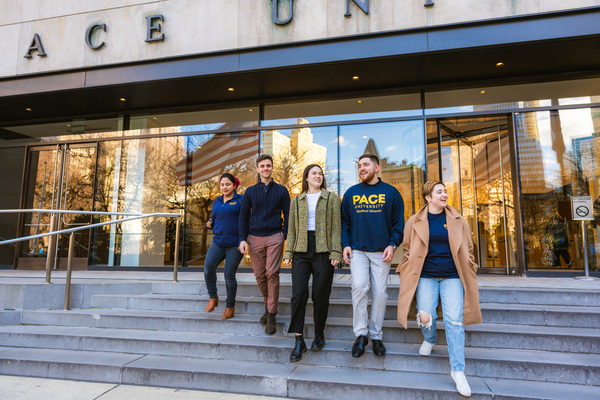In recent years, Anti-Racism Education (ARE) initiatives have become more prevalent in schools and universities. The University’s ARE program has been in effect for four years, dating back to 2020. According to the University’s ARE informational page, anti-racism is “the ongoing process of naming, analyzing, evaluating and imagining ways to change systems of racism.”
All undergraduate students must fulfill the ARE requirement to graduate, and the University offers a wide variety of ARE courses, ranging from arts and sciences to technology business classes to classes whose primary focus is race. These courses are in Dyson, Sands, Lubin, Seidenberg, the College of Health Professions and the School of Education. Courses are proposed by professors who create the curriculum and then filtered through the ARE committee for approval.
ARE Coordinator Laura Kaplan explained how the ARE program came about in the first place, “The demand for the ARE education program came about after the murder of George Floyd… so the Black Student Union felt like [the University] as an institution needed to do more to promote anti-racism education.”
For a course to fulfill the ARE requirement, it has to meet one of the five learning objectives: inequalities, knowledge-making, intersectionality, change-making and Black, Indigenous and People of Color contributions. Regarding the reasoning behind the creation of these types of courses, ARE Coordinator Kyomi Gregory-Martin stated that the program came to fruition after the murder of George Floyd in 2020.
“Some students felt like there should be more courses that represent diverse topic areas and maybe classes that traditionally haven’t explored that. Also, the fact that [the University] has said that they are an anti-racist institution, there was some need for some form of accountability. And by having this initiative, that was an opportunity to provide that for students that also provided an opportunity for faculty to step up in creating that curriculum,” Gregory-Martin said.
Professor Darius Phelps shared why he believes that ARE courses benefit students at the University, “It provides somewhat of a reflective and introspective piece when it comes to our students. It really teaches them where they come from but also learning to see the world as perceptive and… about other cultures, backgrounds, ethnicities and other ways of life. These courses are important for me to use that platform as a vessel to provide these opportunities for our students to really make that connection piece and find that sense of community, belonging and most importantly, love.”
Sophomore Ishika Naik, a Women and Gender Studies major, expressed her opinion on the ARE program and its impact on her education thus far. “I think ARE courses are important because while we are a diverse school, we are a [predominately white institution]… I’ve seen lots of people from out of state struggle to adjust to the stark difference of New York, where there is a new language on every corner. Learning more about each other, acknowledging our differences and being aware of historical conflicts and how they appear in systems we are often blind to is extremely important to continue building community and empathy, not just within the University but out in the real world too,” she stated.
ARE courses can take many forms; two are required for all undergraduate students. The ARE courses are faring well at the University, and the program is growing each year as faculty members propose new courses.
“It’s evolving. I’ve noticed in maybe my second semester in this specific program at [the University], these students come with this hunger [to learn]… So I really see it evolving, and the key to keeping this going is cross-collaboration between the literacy department, ARE and how these platforms can merge as one,” Phelps said.
As the University continues its ARE initiative, many schools nationwide face enormous backlash due to their diversity, equity, and inclusion programs. With the Supreme Court’s decision to overturn affirmative action in 2023, race and its place in higher education continue to be controversial subjects. Nonetheless, the ARE initiative at the University proves to be a hopeful opportunity for both students and professors as it continues into its fourth year.








Erika Banick • Sep 29, 2024 at 4:35 pm
A very interesting read!